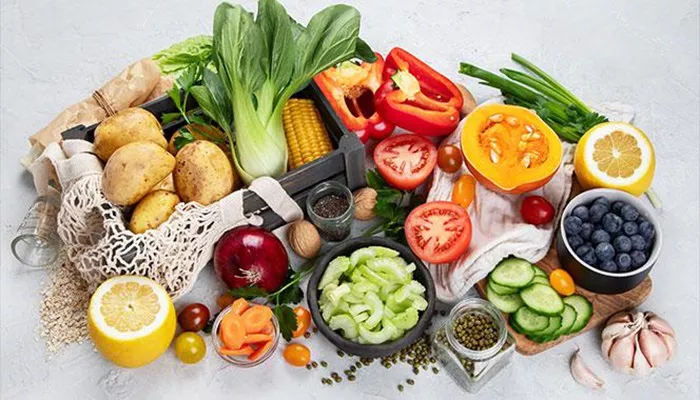Breastfeeding is a vital period for both the mother and the baby. The mother’s diet during lactation affects the quality of the breast milk and her own health. Proper nutrition ensures that the baby receives essential nutrients for growth and development. Here are the key dietary components to increase during lactation:
What to Increase in Diet During Lactation?
Protein
Protein is crucial for milk production. It helps in the growth and repair of tissues, making it essential for both the mother and the baby. During lactation, mothers should increase their protein intake by consuming:
Lean meats: Chicken, turkey, and beef are excellent sources of high-quality protein.
Fish: Salmon, sardines, and trout provide protein and are rich in omega-3 fatty acids.
Eggs: They are versatile and can be included in various meals.
Dairy products: Milk, cheese, and yogurt offer protein and calcium.
Legumes: Beans, lentils, and chickpeas are good plant-based protein sources.
Nuts and seeds: Almonds, walnuts, chia seeds, and flaxseeds are protein-packed and also provide healthy fats.
See also: Can You Eat Low Carb While Breastfeeding?
Calcium
Calcium is vital for the development of the baby’s bones and teeth. It also helps the mother maintain her bone health. To meet the increased calcium needs, include:
Dairy products: Milk, cheese, and yogurt are rich in calcium.
Leafy green vegetables: Spinach, kale, and bok choy are good sources of calcium.
Fortified foods: Some juices, cereals, and plant-based milk alternatives are fortified with calcium.
Fish: Canned salmon and sardines with bones are excellent sources of calcium.
Iron
Iron is essential for preventing anemia, which can affect both the mother’s energy levels and milk production. To increase iron intake, consume:
Red meat: Beef and lamb are high in iron.
Poultry: Chicken and turkey also provide iron.
Fish: Tuna and salmon are good sources of iron.
Legumes: Lentils, beans, and chickpeas are plant-based sources of iron.
Leafy green vegetables: Spinach and kale contain iron.
Fortified cereals: Many breakfast cereals are fortified with iron.
Vitamins
Vitamin D
Vitamin D is crucial for the baby’s bone health and immune function. It helps the body absorb calcium. Increase vitamin D intake by consuming:
Fatty fish: Salmon, mackerel, and tuna are rich in vitamin D.
Fortified foods: Milk, orange juice, and cereals often contain added vitamin D.
Egg yolks: They provide a small amount of vitamin D.
Vitamin A
Vitamin A supports the baby’s vision and immune system. It is also important for the mother’s health. Increase vitamin A intake by consuming:
Dairy products: Milk, cheese, and yogurt contain vitamin A.
Orange and yellow vegetables: Carrots, sweet potatoes, and pumpkins are rich in vitamin A.
Leafy green vegetables: Spinach and kale also provide vitamin A.
Fish: Liver and fish oils are excellent sources of vitamin A.
Vitamin C
Vitamin C is important for the baby’s immune system and helps the mother absorb iron. Increase vitamin C intake by consuming:
Citrus fruits: Oranges, grapefruits, and lemons are rich in vitamin C.
Berries: Strawberries, blueberries, and raspberries provide vitamin C.
Tomatoes: Fresh and cooked tomatoes are good sources.
Bell peppers: Red, yellow, and green bell peppers are high in vitamin C.
Broccoli: This vegetable is another excellent source of vitamin C.
B Vitamins
B vitamins, including B6, B12, and folic acid, are essential for the baby’s brain development and the mother’s energy levels. Increase B vitamins intake by consuming:
Whole grains: Brown rice, oats, and whole wheat bread contain B vitamins.
Meat and poultry: Beef, chicken, and turkey provide B vitamins.
Fish: Salmon, trout, and tuna are rich in B vitamins.
Dairy products: Milk, cheese, and yogurt offer B vitamins.
Leafy green vegetables: Spinach and kale are good sources.
Fortified cereals: Many cereals are fortified with B vitamins.
Fats
Healthy fats are important for the baby’s brain development and overall growth. Increase healthy fats intake by consuming:
Avocados: They are rich in monounsaturated fats.
Nuts and seeds: Almonds, walnuts, chia seeds, and flaxseeds provide healthy fats.
Olive oil: It is a good source of monounsaturated fats.
Fatty fish: Salmon, mackerel, and sardines contain omega-3 fatty acids.
Fluids
Staying hydrated is crucial for milk production. Increase fluid intake by:
Drinking water: Aim for at least eight glasses of water a day.
Herbal teas: Some herbal teas can help with milk production.
Milk: It provides both hydration and essential nutrients.
Juices: Opt for 100% fruit juices without added sugars.
Fiber
Fiber is important for the mother’s digestive health and can prevent constipation. Increase fiber intake by consuming:
Whole grains: Brown rice, oats, and whole wheat bread provide fiber.
Fruits: Apples, pears, and berries are high in fiber.
Vegetables: Carrots, broccoli, and spinach offer fiber.
Legumes: Beans, lentils, and chickpeas are rich in fiber.
Conclusion
A balanced diet during lactation is essential for the health of both the mother and the baby. Increasing the intake of protein, calcium, iron, vitamins, healthy fats, fluids, and fiber ensures that the mother can produce high-quality breast milk. This supports the baby’s growth and development while maintaining the mother’s health. Consult with a healthcare provider to tailor a diet plan that meets individual nutritional needs during lactation.


